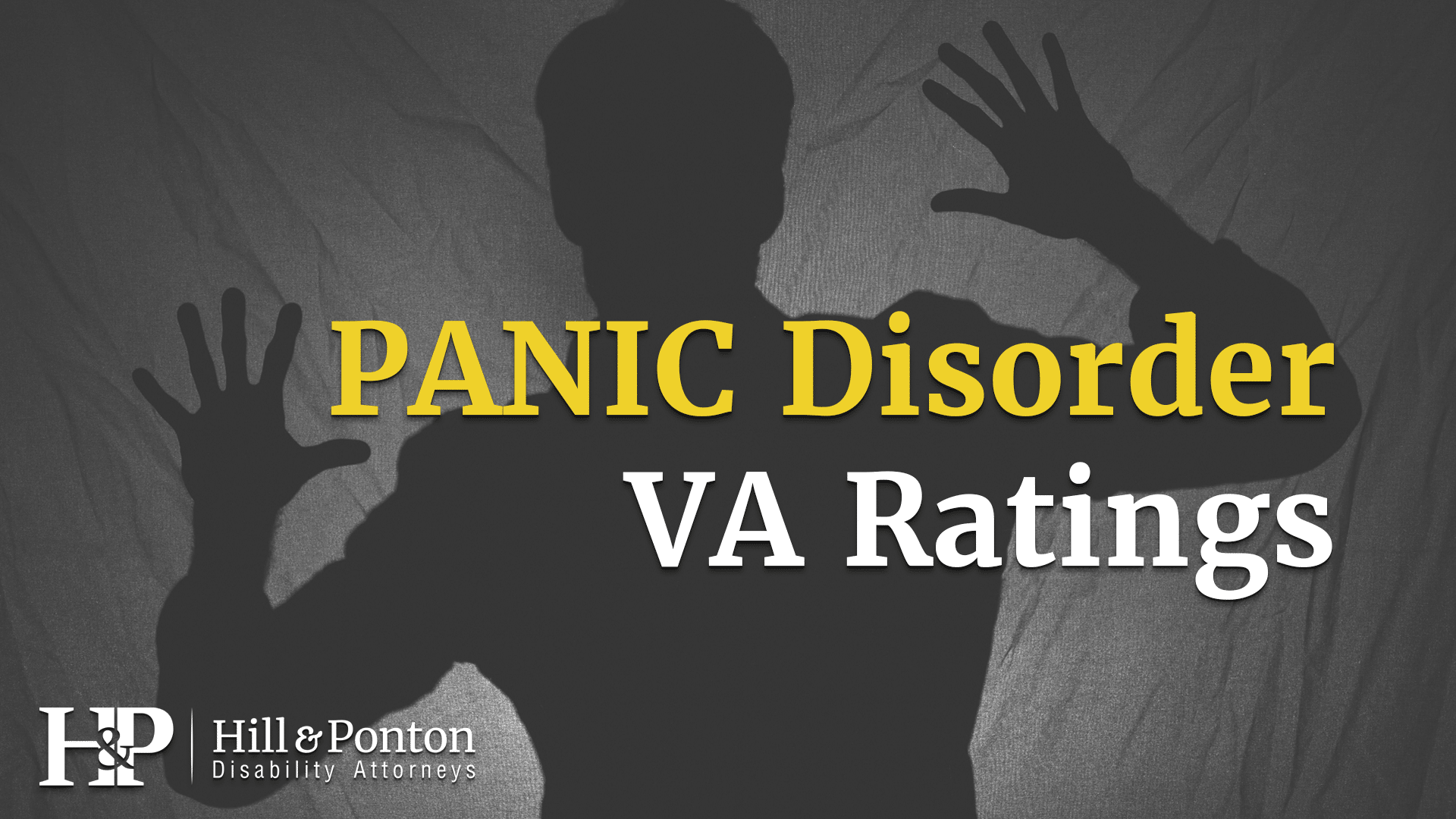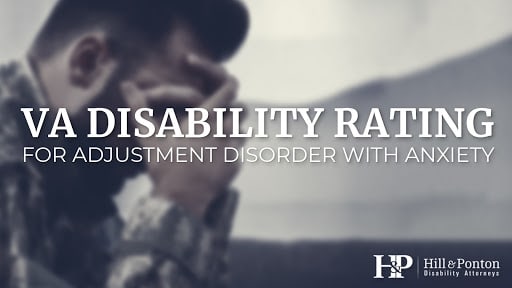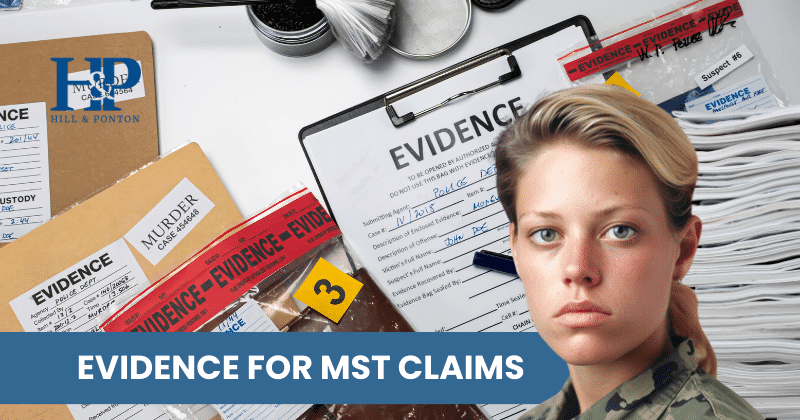Not to be confused with Generalized Anxiety Disorder or PTSD, panic disorder is a different form of anxiety disorder that leads explicitly to anxiety attacks, also known as panic attacks. Many vets silently suffer from these types of “invisible” conditions once they return home from deployment and have a lot of time to think things over. However, there is some hope since VA does award service-connection for mental health conditions that can be linked to your active duty service.
How Does Panic Disorder Affect Veterans?
Panic disorder is a form of anxiety that causes panic attacks – brief episodes of intense fear and terror without cause. Anxiety attacks can happen at any time and place, and they may occur without notice. Oftentimes, the worry of a panic attack happening is enough to trigger one by itself. Veterans with panic disorder may live in constant fear of having another panic attack, which can lead to avoidance of certain situations and a decline in overall quality of life.
Common Symptoms of Panic Attacks
- Heart palpitations or rapid heartbeat
- Shortness of breath or a feeling of being smothered
- Chest pain or discomfort
- Dizziness, lightheadedness, or feeling faint
- Sweating or chills
- Nausea or abdominal distress
- A feeling of detachment from reality or oneself (derealization or depersonalization)
When Does Panic Disorder Qualify for VA Disability?
Veterans must provide documentation of the following three items:
- A panic disorder diagnosis to prove that you have the condition. The diagnosis must be current in order to qualify.
- Evidence of an in-service events or injury inactive duty. The best way to prove that an in-service event happened is to have service treatment records since the military SHOULD have recorded history of any injury or illness you got while you were in the service, although we know that doesn’t always happen.
- A medical nexus, or medical link, between the panic disorder and the in-service event or injury. Medical evidence is king here, but in situations where that’s unavailable, buddy statements could really come through to help you corroborate your claim.
Undergoing Your C&P Exam
When you go in for your VA C&P exam, they will be looking for evidence of your condition. This includes things like fear or anxiety attacks, feeling out of control, and worrying about having another panic attack. You’ll want to make sure you bring any medication information with you to the appointment, as well as records of any relevant treatments you’ve received.
The VA doctor will also ask you questions about your symptoms and how they’ve affected your life. All of this information will be used to determine your VA disability rating for panic disorder. Make sure you attend this examination; you cannot skip it without a legitimate reason you can prove. If it’s impossible for you to make it to one, albeit from a distance or timeframe, then call the VA and communicate that.
How VA Rates Mental Health Conditions (Including Panic Disorder)
- 0% mental health rating: VA considers a mental condition non-compensable if the symptoms are not severe enough to interfere with your work or social life. This means that you do not need to take medication all the time to control the symptoms.
- 10% rating: Some veterans have mild or transient symptoms that make it harder for them to work. These symptoms only happen during times of stress or when they take medication to control them.
- 30% rating: The veteran has some problems at work because of symptoms like feeling depressed, anxious, or suspicious. They also have issues with chronic sleep deprivation and mild memory loss.
- 50% rating: The veteran has a hard time working because of symptoms like not being able to feel happy, difficulty understanding complex instructions, forgetting things often, having mood swings, and finding it hard to make friends or keep a job. We can already see this is getting pretty devastating, and we’re only at 50%.
- 70% rating: Veterans can experience problems with work, school, family life, judgment, thinking, and mood. This is often due to symptoms such as suicidal thoughts, rituals that get in the way of daily activities, illogical speech, near-continuous panic attacks, depression that stops them from functioning normally, impaired impulse control, not taking care of their personal hygiene, and having severe issues maintaining employment or meaningful relationships.
- 100% rating: The veteran has total occupational and social impairment due to difficulty thinking or communicating, hallucinations, strange or dangerous behavior, difficulty completing daily tasks, confusion about time and place, and forgetting important people’s names like loved ones.
Get Help With Your VA Disability Claim
Total Disability based on Individual Unemployability
Suppose a veteran can’t find a job because of their panic disorder connected to their service. In that case, they may be able to get 100% disability rating benefits from the VA through TDIU even though they’re not technically at a 100% level.
The VA should supposedly consider vets for TDIU when they are looking at service-connected claims that are pretty severe for their disorder. However, veterans can also file the TDIU VA form 21-8940 to get that started.
Wrongfully Denied or Lowballed?
If you’re a veteran experiencing panic attacks who had your service-connected claim denied or lowballed, don’t give up. The VA disability rating for panic disorder and any mental health condition can be complicated, but our team of experts is here to help. We have years of experience fighting for the benefits that our veterans deserve, and we won’t stop until we obtain your rightful compensation. If you have an active decision you want to appeal, contact us for a free evaluation.




